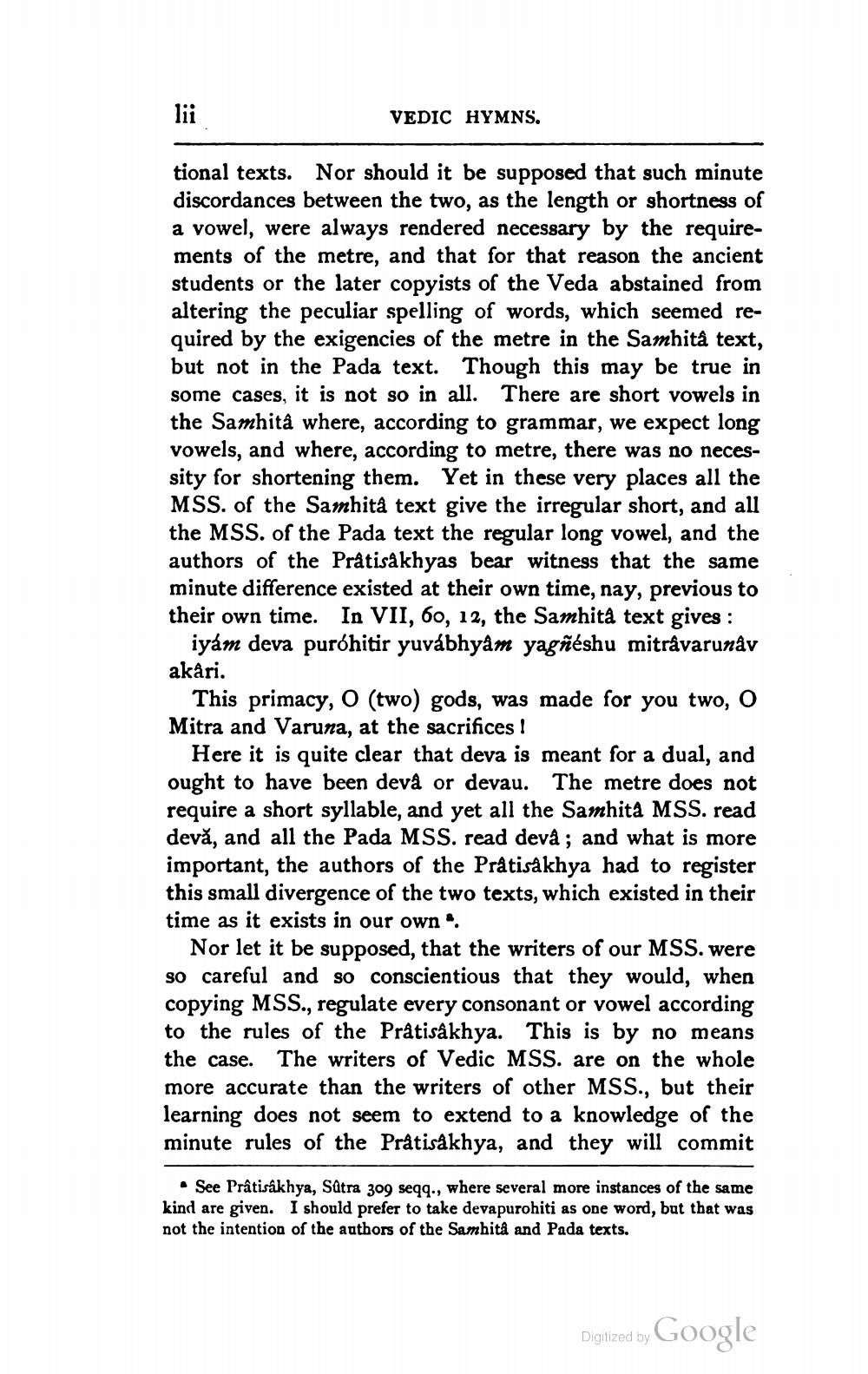________________
VEDIC HYMNS.
tional texts. Nor should it be supposed that such minute discordances between the two, as the length or shortness of a vowel, were always rendered necessary by the requirements of the metre, and that for that reason the ancient students or the later copyists of the Veda abstained from altering the peculiar spelling of words, which seemed required by the exigencies of the metre in the Samhità text, but not in the Pada text. Though this may be true in some cases, it is not so in all. There are short vowels in the Samhita where, according to grammar, we expect long vowels, and where, according to metre, there was no necessity for shortening them. Yet in these very places all the MSS. of the Samhità text give the irregular short, and all the MSS. of the Pada text the regular long vowel, and the authors of the Prátisakhyas bear witness that the same minute difference existed at their own time, nay, previous to their own time. In VII, 60, 12, the Samhita text gives :
iyam deva puróhitir yuvábhyam yagñéshu mitråvarunav akari.
This primacy, 0 (two) gods, was made for you two, O Mitra and Varuna, at the sacrifices !
Here it is quite clear that deva is meant for a dual, and ought to have been devå or devau. The metre does not require a short syllable, and yet all the Samhità MSS. read devă, and all the Pada MSS. read devâ; and what is more important, the authors of the Prátisåkhya had to register this small divergence of the two texts, which existed in their time as it exists in our own
Nor let it be supposed, that the writers of our MSS. were So careful and so conscientious that they would, when copying MSS., regulate every consonant or vowel according to the rules of the Prátisåkhya. This is by no means the case. The writers of Vedic MSS. are on the whole more accurate than the writers of other MSS., but their learning does not seem to extend to a knowledge of the minute rules of the Prátisakhya, and they will commit
• See Prâtisåkhya, Sätra 309 seqq., where several more instances of the same kind are given. I should prefer to take devapurohiti as one word, but that was not the intention of the authors of the Samhitå and Pada texts.
Digized by Google




